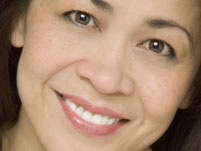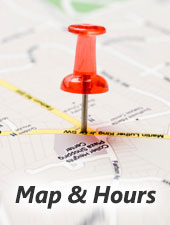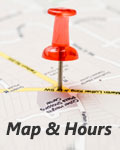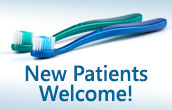Will I Be Comfortable During My Root Canal Treatment?
The answer should be an emphatic "YES!" Fortunately, dentistry has developed new techniques for delivering local anesthetics painlessly. These techniques also assure that the anesthetics act more rapidly and produce a more "profound" level of anesthesia. Additionally, modern dental procedures utilize better technologies that are generally much less traumatic and invasive than those of the past. The result of these advancements is that patients should have minimal or no discomfort during the tooth numbing and/or treatment procedures. Root canal treatment should not cause pain, but rather relieve it and keep it from reoccurring. Unfortunately, dental pain may also have a psychological component, possibly stemming from a negative past experience, a story in the media, or even fear of the unknown. Sometimes these situations can prove challenging for the patient and the endodontist to control. Examples include:
- Patients who associate tooth pain with a past root canal procedure when, in fact, the pain they remember was experienced prior to their emergency visit. Oftentimes, this pain develops over a period of several hours to a few days and is allowed to build and worsen before seeking treatment. Once the patient seeks emergency care from a root canal dentist, the endodontics treatment should not be uncomfortable and should provide quick and certain relief from any painful symptoms stemming from root canal disease.
- Patients may become very anxious when being examined or treated dentally because the mouth is such an important part of the body and psyche. Some patients may feel anxious and vulnerable during a root canal procedure because of their positioning in the dental chair with members of the dental team working above them in such close and intimate proximity.
These and other distresses are real to the patient. Much of the time, however, the distress can be reduced or eliminated if the patient discusses it with the endodontist and gets understanding and reassurance. The doctor and the patient must work together in these situations to make certain that the patient feels as comfortable, trusting, and informed as possible in the dental environment. Most individuals can do this satisfactorily. If patients continue to feel significant distress, even after having these discussions with the dentists, they should be aware that there are therapeutic methods that can be used and for which they might be candidates. These may include:
- Oral sedation dentistry involves ingesting a sedative pill or liquid before the appointment. This can help anxious patients a great deal and make the treatment experience much less stressful.
- Nitrous oxide analgesia, known as "laughing gas," can be inhaled along with oxygen to make patients feel less anxious and more comfortable.
- Intravenous sedation can be administered in a dental facility by a specially trained and certified dental team or by a specially trained dental anesthesiologist. With intravenous sedation, patients are not asleep and they can still respond, but they will not feel or remember anything. This technique works very well in creating a pleasant experience for many anxious patients and is a good anesthetic method for more lengthy dental procedures.
- Hospital dentistry is conducted in an environment where a variety of anesthetic methods are available and can be used under the safest medical conditions. General anesthetic and intravenous sedation can both be utilized in the hospital setting.
These sedative techniques and medicines may also be helpful if particularly lengthy root canal treatment procedures are necessary in specific situations.
With all of the advancements in pharmaceuticals and in their delivery, there should be no need for any patient to delay endodontics treatment because of fear that the treatment will be painful.
By Clifford J. Ruddle, DDS, in collaboration with Philip M. Smith, DDS
«« Back to Dental Information Center
Don't Forget to Floss!
Clean between teeth daily with floss or an interdental cleaner. Decay-causing bacteria can hide between teeth where toothbrush bristles can't reach. Flossing helps remove plaque and food particles from between teeth and under the gum line.
Mouthwash Is Important, Too!
Brushing and flossing may not be enough. The ADA now recommends using an antimicrobial mouthwash to reduce plaque and prevent gingivitis.
(909)621-4862





